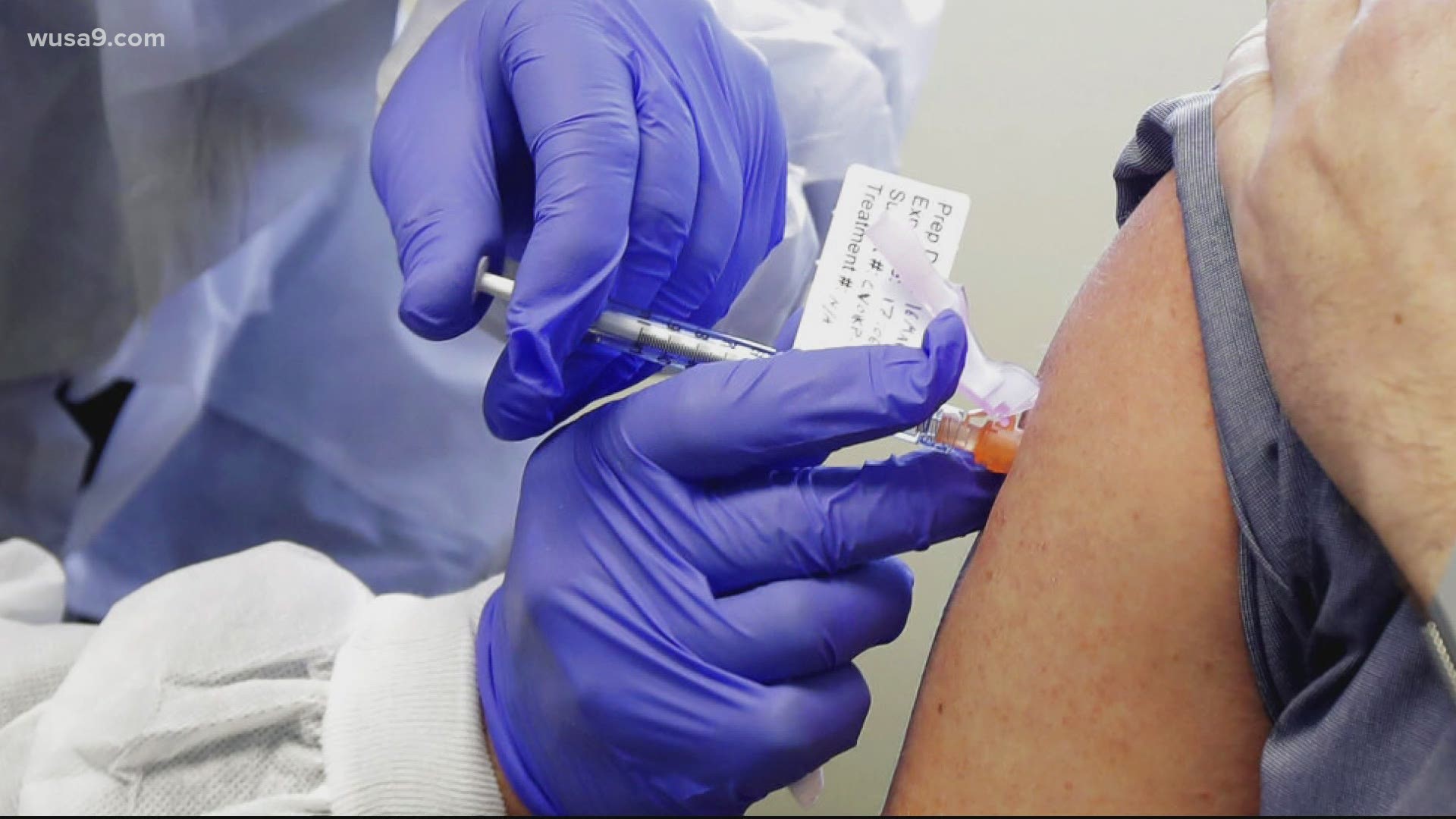WASHINGTON — The two coronavirus vaccines in trial phases could get FDA approval soon. Pfizer will file for approval Friday and Moderna will not be far behind.
As the approval process goes through, we expect to learn more about how the vaccines work.
The information continues to come out from the vaccine trials-
Question:
Would you still be able to transmit coronavirus even after you’ve been immunized?
Answer:
Our experts can’t say conclusively if the vaccine keeps people from passing the virus on to others.
Our Sources:
Dr. Chris Beyrer from Johns Hopkins University, Dr. William Moss from Johns Hopkins University and Dr. David Diemert, a vaccines expert from George Washington University.
Our Process:
Our medical experts have already explained, they don’t know if the vaccine will stop coronavirus from entering your body.
Dr. Beyrer said both companies’ vaccines focus on stopping or lessening the disease caused by virus.
“These COVID vaccines are preventing clinical disease, we don't know if they prevent transmission,” he explained.
According to Dr. Diemert, in the same way we don’t know if the vaccines stop the virus from coming into your body, we also don’t know about it leaving a vaccinated body.
“It doesn’t necessarily mean it wouldn’t stop someone from transmitting it to someone else,” he said. “So, we have to make sure that also occurs with the vaccine before we stop wearing masks.”
We don’t know if a vaccinated person can still pass coronavirus onto another person. Our experts point out this is a reminder we still have to wear masks and avoid crowds even after a vaccine comes out.
“These vaccines are not going to be the silver bullet to end the pandemic and we're gonna be able to go back to pre-pandemic lifestyle in January, February,” Dr. Moss said. “It's not going to be like that.


